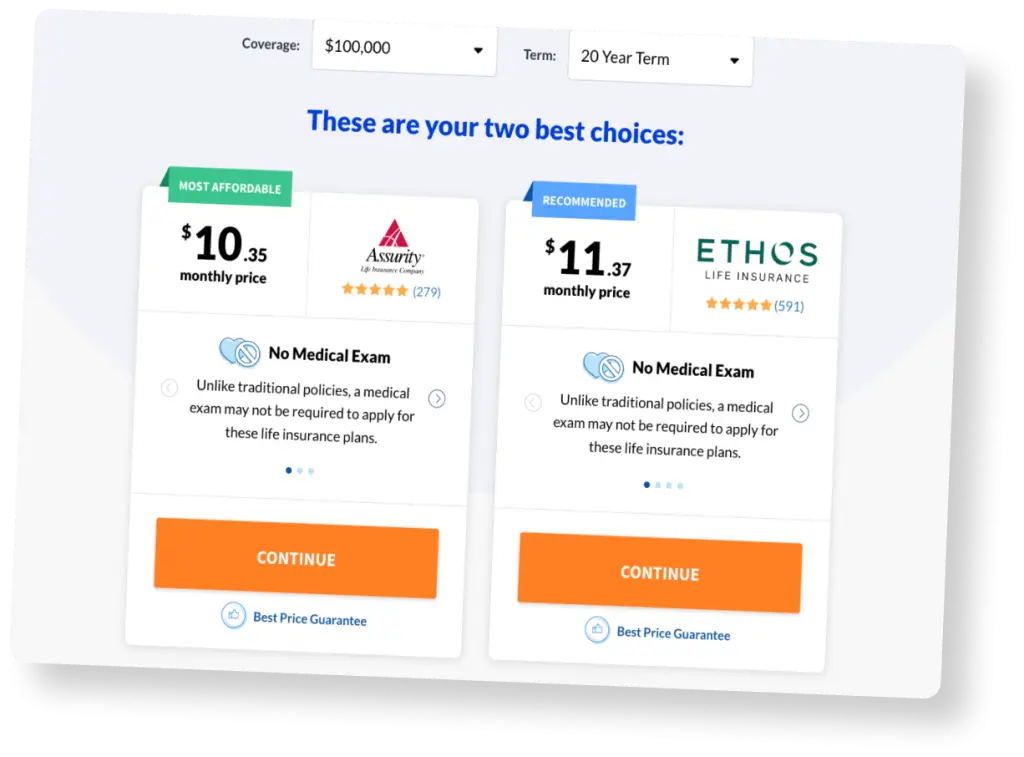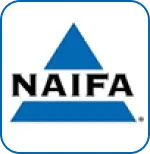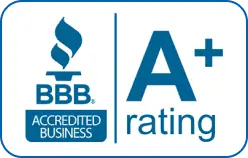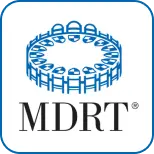When considering key person insurance, the first step for any business is to determine the company’s reason for buying the policy. Once the actual purpose of the insurance is established, the correct type of coverage can be identified. The 3 basic types of life insurance used to fund key person insurance include term life, universal life and whole life. Each of these types of coverage offers several options which are discussed below.
What Type Of Life Insurance Protects You The Most?
The primary reason businesses purchase life insurance is to protect the company from unnecessary risks. However, life insurance has other valuable business uses as well.
Life insurance can be used to provide valuable executive benefits or to fund corporate buyouts. Cash value life insurance has a unique combination of tax advantages that are not available with any other financial, investment, or cash accumulation product. These advantages include: tax deferred cash values, tax-free income via withdrawals and loans and income tax-free death benefits.
Need to know more on the different types of life insurance available to you? Here are the three we’re going to discuss to help you navigate more quickly:
Term Life
In many cases, the reason for buying a key man policy may be temporary. If so, term life insurance is generally the best choice. Term life is the cheapest form of coverage but is not designed to be a solution for long term needs. There are several different forms of term life insurance policies including annual renewable term (ART), guaranteed level term, return of premium (ROP) term, and lifetime guaranteed term insurance. The most popular term life policies for key person insurance include level term life and lifetime guaranteed term. A description of each kind of term policy follows.
Annual Renewable Term Life Insurance (ART)
Annual renewable term is life insurance that covers an individual for a one year period at a guaranteed rate. At the end of each one year period, the policy can be maintained but the premiums will increase to reflect the new age of the insured. In most cases, annual renewable term policies offer the absolute lowest premiums over the first few policy years. However, as the covered individual gets older, premiums will gradually increase and in a very short time be more expense than other level term options.
Annually renewable term insurance is best suited for situations with very short-term needs of usually 2-3 years or less.
trusted by 5,000+ clients
Compare Life insurance Rates
See rates and benefits tailored to your business needs.
Level Term Life Insurance
Level term life insurance provides guaranteed level death protection at a guaranteed fixed premium for a specific time period. Level term life is the most popular form of key person term insurance and is available in guaranteed periods of 5, 10, 15, 20, 25 and 30 years. Policy costs are based on the age, gender, lifestyle and health of the insured as well as the length of the guaranteed level term period. Because the insurance company is “on the hook” for a longer period of time, premium payments for guaranteed level periods of 20 and 30 years are higher than similar policies with guarantee periods of 5 or 10 years. In fact, depending on the insured’s age at issue, the cost of a 20 year policy can be double the cost of a 10 year policy assuming the same face amount of insurance.
Level term life insurance is most appropriate in situations where the insurance need is definite over a specific time period. It should be used as a temporary bridge that provides the low cost protection during the period of need but can be dropped or expires at the point when the coverage no longer becomes necessary. Ten year level term is the most popular policy for most key man insurance needs as the coverage is inexpensive relative to other level term options and provides a guaranteed rate for full ten year period.
Return of Premium Term Life Insurance (ROP Term)
Return of premium term insurance offers affordable life insurance protection with premium guarantees and a unique feature that returns 100% of premium payments at the end of the level term period. Depending on the insurance company, ROP term builds guaranteed cash values in the early policy years that will equal the total premiums paid by the end level term period. Cash values may be accessed prior to the end of the level term period but only percentage of premiums is generally returned.
Return of premium term insurance is also known as “cash value term”. It is useful in key man situations where the need for life insurance is temporary, usually 15-30 years, and the business is interested in getting cash back when the insurance is no longer necessary. If your company does not like the idea of paying for level term insurance which builds no equity, ROP term insurance is ideal as the cost is significantly lower than traditional cash value insurance policies but still offers a return at the end of the level term period.
Lifetime Guaranteed Term Insurance
Also referred to as “term insurance to age 100”, lifetime guaranteed term insurance offers a fixed premium and death benefit for the life of the insured. Unlike traditional term life insurance, lifetime guaranteed term rates will not increase as long as the guaranteed premiums are paid on time.
Lifetime term policies can be thought of as a “hybrid policy” between level term insurance and traditional whole life insurance. Premiums for lifetime guaranteed term are cost effective like level term premiums but the policy also offers the long term death benefit guarantees associated with whole life insurance. Lifetime guaranteed term insurance polices and lifetime guaranteed universal life policies have effectively bridged the gap between term life and whole life insurance.
Many lifetime guaranteed term policies are actually universal life insurance policies with guaranteed insurance benefits for life. While a small cash value may accumulate in these policies, cash value growth is not an objective of this insurance. The main purpose of lifetime guaranteed term insurance is to “lock in” a low guaranteed rate that can never be increased. As long as required premiums are maintained, the policy will remain in effect at the insured’s death. Lifetime guaranteed term insurance is the most cost effective policy when the goal is to guarantee coverage for life.
Lifetime guaranteed policies are best suited for key man situations involving business continuation planning and especially in funding buy-sell agreements.
Universal Life Insurance
For key man situations where permanent insurance is needed, universal life (UL) is a viable option. Universal life insurance combines the advantages of low cost term insurance with a tax deferred savings vehicle similar to whole life insurance. This unique policy design allows for flexible premiums and insurance amounts which makes the UL policy a versatile tool that is adaptable to changing business circumstances. Common types of universal life policies include flexible premium adjustable life, guaranteed universal life, equity indexed life and variable universal life. The type of UL policy that is best for your company will be based on the company’s objectives and reasons for the insurance.
Flexible Premium Adjustable Life Insurance
Flexible premium adjustable life policies offer the low costs of term life insurance with a side fund that grows tax deferred. When purchasing a flexible premium universal policy for key man purposes, the primary objective is to provide a tax deferred cash accumulation vehicle for retirement income with a death benefit that can be paid to the key executive’s family in the event of their death. These policies generally pay a stated interest rate that can fluctuate annually but is guaranteed to earn a set minimum, usually 4%.
Flexible premium adjustable life is useful for key man situations where long term coverage is needed and the ability to grow cash value at a fixed interest rate is desired.
Guaranteed Universal Life Insurance
Guaranteed universal life is similar to lifetime guaranteed term insurance mentioned above. It provides guaranteed coverage for a set period of time based on the company’s needs. These policies build cash value; however, the guaranteed death benefits are the primary reason to buy a guaranteed UL policy. They are useful in situations where term insurance cannot be purchased due to the age of the key person or when coverage needs to be extended over a person’s lifetime.
Guaranteed UL policies are very useful in long term planning situation such as business continuation and buy-sell planning.
Equity Indexed Universal Life Insurance (EIUL)
Equity indexed life combines the benefits of a traditional universal life policy with the ability to earn stock market type returns without the downside risk associated with equities. The policy works the same as flexible premium adjustable life with the added option to allocate cash values to indexed accounts such as the S & P 500®, the Dow Jones Industrial Average or the NASDAQ. Cash values are not invested directly into equity accounts. The interest credited to the cash value is based on the upward movements of the selected index. If the index appreciates, the cash value is credited with a given rate based on the terms of the policy. If the underlying index loses value, the policy is credited with a 0% return. For a more detailed analysis of EIUL see, what is equity index life insurance?
EIUL policies are best suited for key executive compensation cases where supplemental retirement income is the primary objective. They can also be used for funding buy-outs among business owners.
Variable Universal Life (VUL)
Variable universal life is a variation of the flexible premium policy that allows for cash value to be allocated in equity accounts similar to mutual funds. VUL policy values fluctuate based on the ups and down of the stock market. When premium payments are made a portion goes to cover the costs of insurance with the remaining balance going to the chosen investment accounts available in the policy. With variable life, the policy owner has 100% of the investment risk. If the underlying funds perform well, the policy will function well. However, in down markets, VUL policies can be dramatically affected. VUL policies are a viable option for cash accumulation in any key man insurance situation as long as the investment risk is understood.
Whole Life Insurance
Whole life insurance or permanent life is designed to last a lifetime. Premium payments are locked in for the life of the policy and coverage is guaranteed as long as premiums are paid on time. With whole life insurance, you are paying higher premiums early in your life to offset the increased cost of coverage at the older ages. Because of the long term guarantees associated with whole life, it is generally more expensive than any other type of life insurance policy.
Like universal life, whole life policies build cash value that grows tax deferred. However, with permanent life, the insurance company’s investment, earnings and claims experience has a significant impact on cash value growth.
Permanent life insurance can be classified as either participating or nonparticipating. With a participating whole life policy, after all the claims and expenses of the insurance company have been paid for a given policy year, the policy owner is entitled to “participate” in any surplus that remains. This surplus payment is known as a policy dividend and is considered to be a return of excess policy premiums. Dividends are not guaranteed and there are no income taxes paid on life insurance policy dividends. On the other hand, nonparticipating policies do not pay policy dividends and are credited with a stated interest rate similar that changes annually. If your company is considering whole life insurance, a participating policy from a top rated company is always the best choice.
If your business is looking to fund a buy-sell agreement or providing executive benefits to help retain key employees, whole life insurance may be the most efficient option. When the need is long term and strong guarantees are required, permanent life insurance should always be considered.
Summary
There are many different reasons to buy key man life insurance. The type of key person insurance your company needs will depend on the specific reasons for buying the insurance. Consulting with an independent insurance professional to determine the exact need is the best strategy to assure you select the appropriate key man policy.














